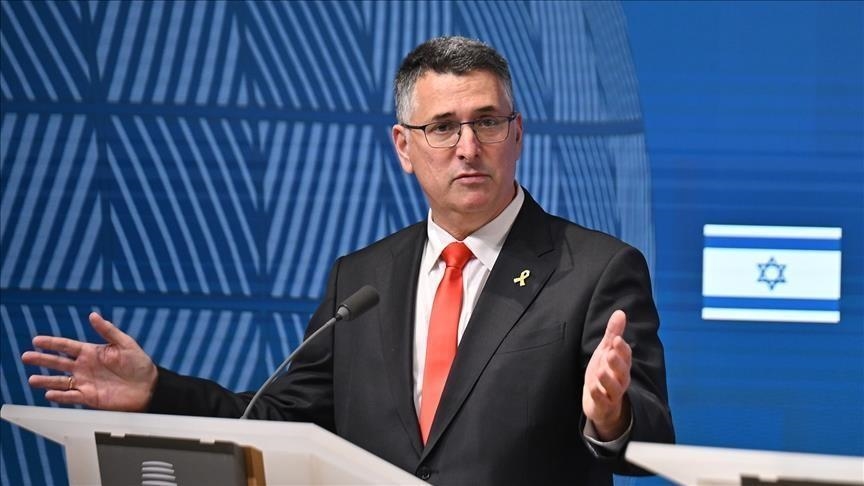In late August, Israeli and Zambian officials gathered in Lusaka to mark a symbolic diplomatic milestone: the reopening of Israel’s embassy in Zambia after 52 years. The event, attended by Israeli Foreign Affairs Minister Gideon Saar, was celebrated as a triumph by Israeli media and government circles. Saar declared, “Israel is returning to Zambia. Israel is returning to Africa,” while hoisting the Israeli flag in the Zambian capital for the first time since ties were severed in the early 1970s. For Israel, the move is being framed as a diplomatic success at a time when much of the world is isolating it due to the devastating war on Gaza, where at least 66,000 Palestinians have been killed and entire neighborhoods flattened.
Experts say the embassy reopening is not just about Zambia but part of a wider strategy: Israel is attempting to pull African nations closer while its global image suffers. South Africa, Israel’s fiercest critic on the continent, has been leading efforts to hold Israel accountable for what a United Nations inquiry panel in September described as genocide in Gaza. Some analysts argue that strengthening ties with Zambia is Israel’s way of undercutting South Africa’s regional influence within the Southern African Development Community (SADC). Faith Mabera, a researcher at the University of the Witwatersrand, described the move as a “divide and rule strategy” to erode Pretoria’s standing in regional diplomacy.
The Zambia event came after a series of diplomatic maneuvers across Africa. Israel’s Deputy Foreign Minister Sharren Haskel visited Nigeria shortly before the embassy reopening, though Abuja, which has expressed solidarity with Palestinians, chose not to publicize the meeting. Soon after, Nigeria’s anti-terrorism unit detained Ramzy Abu Ibrahim, a leader of the Palestinian community in Nigeria, raising questions about possible political links to Israel’s outreach. Haskel also traveled to South Sudan, a key Israeli ally, where she pledged aid to the conflict-ridden nation while reports simultaneously emerged of alleged Israeli plans to forcibly transfer Palestinians from Gaza to South Sudan — a claim the South Sudanese government denied despite corroborating reports by Reuters and the Associated Press. Similar reports of discussions involving Somaliland were also met with strong local rejection.
Africa-Israel relations have historically been uneasy. While Israel established ties with many African states in the 1950s and 1960s, those relationships soured after the 1973 Arab-Israeli war. Within months, more than 20 African nations cut ties with Israel in solidarity with Palestine and Egypt, marking one of the most significant collective diplomatic ruptures in modern history. Though Israel has since reopened around 11 embassies in Africa, down from 33 before 1973, its reputation across the continent remains largely negative, shaped by solidarity with Palestinians and comparisons between apartheid South Africa and Israel’s policies in the occupied territories. South Africa has consistently linked its liberation struggle to Palestinian freedom, echoing Nelson Mandela’s famous 1997 statement that “South Africa’s freedom is incomplete without the freedom of the Palestinians.”
Despite this, Israel has invested heavily in re-engaging Africa. It secured observer status at the African Union in 2021, though the move is contested by South Africa and Algeria. Israel has also used aid and trade — particularly in East Africa — to gain influence. Between 2009 and 2021, its aid agency Mashav sent $45 million worth of assistance to Ethiopia, Uganda, Tanzania, South Sudan, and Kenya. Ethiopia, which has received the most aid, nevertheless voted repeatedly against Israel in United Nations resolutions. Only South Sudan has consistently stood by Israel, a relationship rooted in decades of covert Israeli support for independence fighters before South Sudan officially broke away from Sudan in 2011.
Israel’s African strategy has also relied heavily on arms and security cooperation. Countries such as Cameroon, Chad, Nigeria, Rwanda, and Uganda have all purchased weapons and surveillance technology from Israel. Analysts argue that by embedding itself within African security frameworks, Israel both profits from instability and shields itself diplomatically. “These partnerships normalize Israel as a counterterrorism ally while deflecting attention from its military occupation and atrocities in Gaza,” said South African analyst Reneva Fourie.
Yet Israel’s efforts to win diplomatic ground in Africa face major obstacles. Since the outbreak of the Gaza war in October 2023, African support has largely collapsed. South Africa filed a landmark genocide case against Israel at the International Court of Justice in December 2023, and the African Union strongly condemned Israel’s actions while reaffirming support for Palestinian statehood. In April 2024, the Israeli ambassador to Ethiopia, Avraham Nigusse, was expelled from an African Union event in Addis Ababa marking the Rwandan genocide anniversary — a public humiliation underscoring how far Israel’s credibility has sunk on the continent.
Despite attempts to rebrand itself through aid, security cooperation, and diplomatic overtures, Israel’s image in Africa remains deeply tied to its war in Gaza and its policies toward Palestinians. The reopening of the embassy in Zambia may be touted as a victory in Jerusalem, but across much of Africa, it highlights Israel’s uphill battle to counter isolation and reshape its reputation. The broader question remains: Can Israel truly win back African allies while the Gaza conflict and accusations of genocide continue to dominate its global standing?














Leave a comment